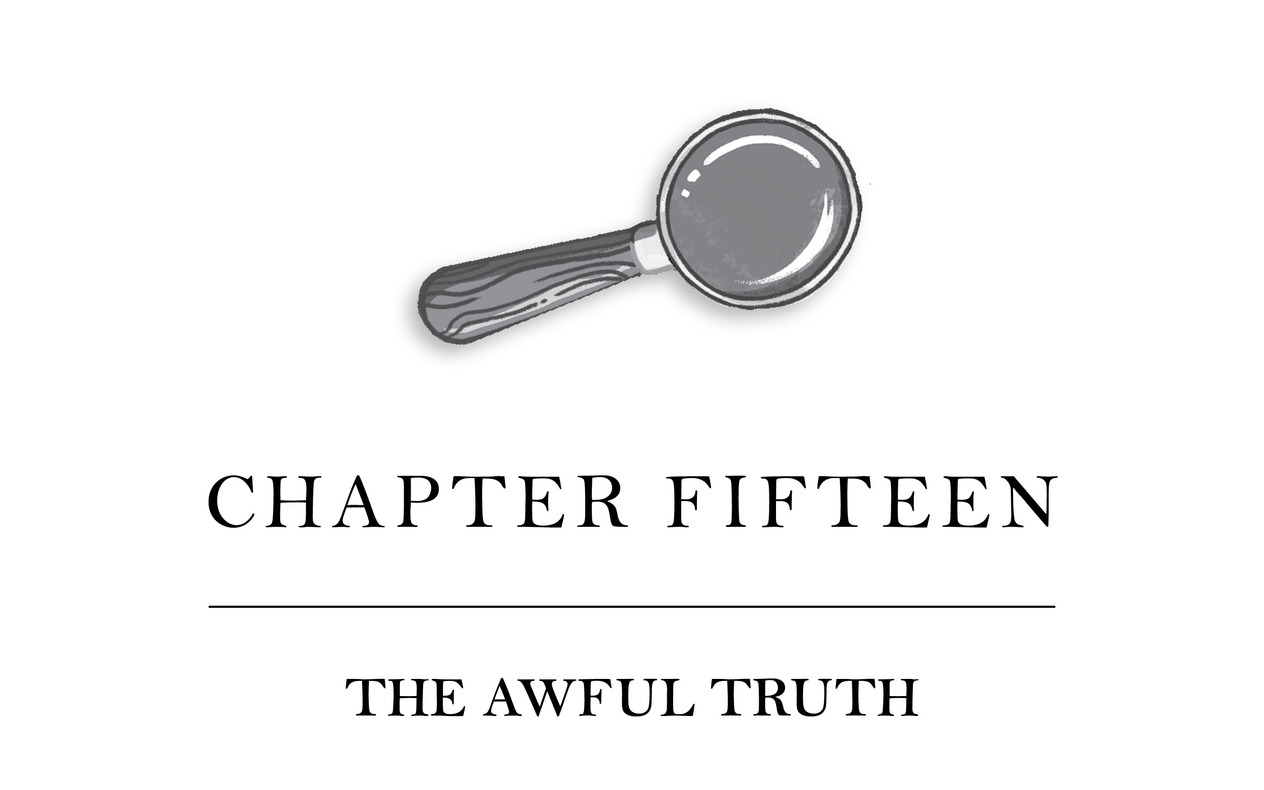
Uncle Marty decided he needed to “stretch his legs,” so the three of us walked down to the market. It was good to be out in the air, to see people laughing, buying flowers, sampling fruit. We grabbed some sandwiches and sat on a small patch of grass facing the water. We watched the boats in the distance, the gulls swooping. We talked of more cheerful things.
“Have you been on the Ferris wheel?” Martin asked Henry.
“Sophie took me, and Alice, a few weeks ago.”
“So she’s not all bad, this stepmother of yours,” Martin said.
“I guess not,” Henry answered.
“And the new school is working out?”
Henry nodded and chewed on his sandwich.
“Well, I can see you’ve done a fine job of making new friends,” he said. And he smiled at me.
When we finished, Uncle Marty asked if we wanted to continue with the journal. “I could walk you to the bus stop,” he offered. “If it’s been enough for one day.”
Henry surprised me when he said, “I need to hear the rest of it.”
And so we trudged up the hill. We returned to the library. We went back—to the journal and the little glass room, to 1918.
Wednesday, October 23, 1918
It seems all we do is search for more space, more beds, more nurses, and more supplies to care for all who are ill. The courthouse is in use, and now we look toward other sectors too for assistance. Visited our pastor today to see if the church might be temporarily converted, as services have now been banned anyway. The kitchen is large, and the Red Cross still has enough supplies to assist us. Will return this evening to see to the arrangements. The streets are empty. Even the Green Lake trolley is not as crowded as before, and everyone’s eyes (above their masks) seem full of fear.
“Why can’t they go to church?” Henry asked.
“Too many people,” Martin said. “They were afraid the flu would spread. They called it a ‘crowd disease.’ They closed the schools, churches, movie theaters. Every large public gathering was canceled. It was too dangerous. And the hospitals couldn’t keep up, so they had to look for other places where they could care for the people who caught it.”
“So he’s going to build a hospital?” I asked.
“Not exactly,” Martin said. “He’s talking about making a hospital, a temporary one, inside a church by bringing in cots and supplies and medical staff. That’s what they did at the courthouse too. Everything was coming to a stop.”
“Like a snow day?” I asked.
Uncle Marty smiled a sad smile. “Well, they were indoors, if that’s what you mean. And after a time, there was no school and no chance to play outdoors or go to a movie. But more than being bored, they must have been afraid. Especially the adults, who knew what might happen. This next entry mentions the temporary hospitals. Listen,” Martin said. And he read aloud to us.
Friday, October 25, 1918
The church has been set up, and beds there fill as quickly as they did at the courthouse. We have been largely spared so far, losing only a few of those we know directly—Mrs. McAdams, who worshipped at our church, passed away a week ago. The grocer’s wife, Elizabeth tells me, is another victim. But then, this morning, as I passed the Pritchett house, the shades were being drawn. By evening, the white crepe hung near the bell. One of the twins must surely have succumbed. We must go pay our respects, or at least drop a note once we are certain what has happened. How I dread mentioning this to Elizabeth, worried as she is about our own two boys. Miss Leary tells me her family is well, which is a relief. Don’t know what I would say to Phillip and Edgar if we lost Constance or Candace.
“Stop for a second,” Henry said.
“What is it?” Martin asked.
Henry and I looked at one another. There they were. All the names, linked together, not just Winterson, which had struck us both the moment Uncle Marty had said it, but Constance Leary and Phillip and Edgar. Was that what Edgar had been whispering through Henry’s radio? Not “wind” and “stone” but “Winterson”?
“Phillip and Edgar,” Henry said, his voice sounding shaky. “They’re Dr. Winterson’s—”
“His sons,” Martin said. “The younger one, Edgar…well, I can keep reading, but…”
But we already knew the awful truth. We both realized that Edgar must have died from the flu, even though neither of us wanted to say it. Not out loud.
“Are you all right?” Martin asked Henry.
Henry nodded, but he didn’t look good. I touched his forehead with my wrist the way my mom does. “He’s burning hot,” I told Uncle Marty. “Henry, I think you have a fever.”
“I think we’d better finish this another day,” Martin said.
Henry looked horrible on the ride home—pale and tired—and he’d started to cough. I felt awful for dragging him out. What made it even worse was reading the journal. In our world, Edgar had always been dead, but on those pages, he was just a little boy, a real, living little boy whose father had no idea that he was about to lose him.